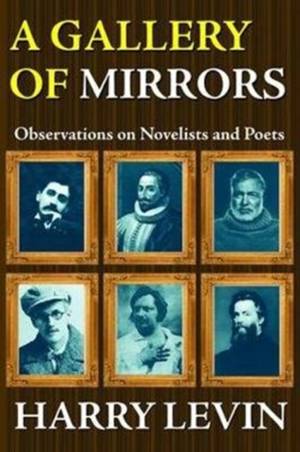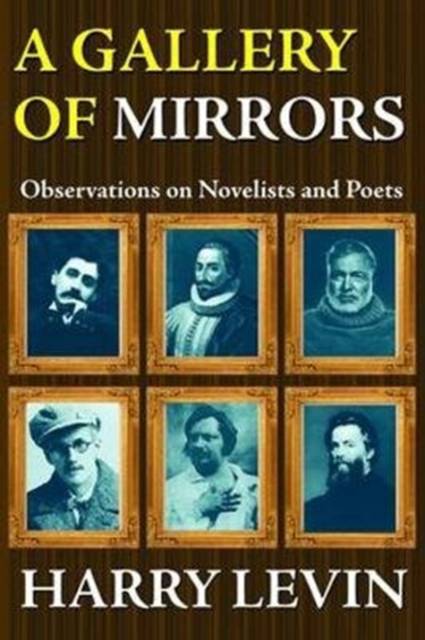
- Retrait gratuit dans votre magasin Club
- 7.000.000 titres dans notre catalogue
- Payer en toute sécurité
- Toujours un magasin près de chez vous
- Retrait gratuit dans votre magasin Club
- 7.000.000 titres dans notre catalogue
- Payer en toute sécurité
- Toujours un magasin près de chez vous
A Gallery of Mirrors
Observations on Novelists and Poets
T Tregear, Harry LevinDescription
The essays in this classic volume range from broad concerns with critical theory and aesthetic formulation to specific analysis of forms and texts. Levin discusses such matters as the symbolic interpretation of literature, the development of literary criticism during the past half-century, European attitudes toward contemporary American writers, and re-evaluations of Joyce, Proust, Balzac, Cervantes, Melville, and Hemingway. Because Levin is both a learned scholar and imaginative critic, there is no comparable book that offers the wit, taste, and learning one finds in these pages. His historical and comparative approaches to literary theory enable Levin to place a given work precisely by relating it to other works and manifestations of culture. World literature is not the province of this work. But Levin views it as the horizon against which our own traditions may be measured. Just as anthropologists discover similar processes working through diverse cultures, so through can we glean understanding of common patterns through the analysis of world literature, our own peculiarly specialized branch of the science of man. The effect of convention, in shaping the extent to which literature may be conceived as an institution, has been widely discussed. A Gallery of Mirrors raises theoretical questions that touch the methodology of humanistic scholarship, with regard to other disciplines, and the status of art, with regard to other modes of knowledge. With changing schools of critical thought, Levin relies considerably on semantics as a precision instrument for defining concepts in the terms of those for whom they were most meaningful.
Spécifications
Parties prenantes
- Auteur(s) :
- Editeur:
Contenu
- Nombre de pages :
- 305
- Langue:
- Anglais
Caractéristiques
- EAN:
- 9781138518209
- Date de parution :
- 02-10-17
- Format:
- Livre relié
- Format numérique:
- Genaaid
- Dimensions :
- 152 mm x 229 mm
- Poids :
- 452 g







